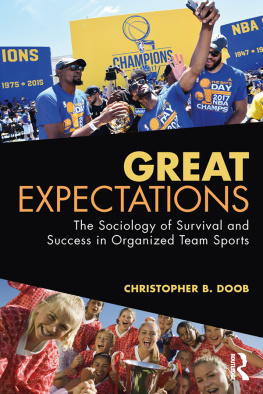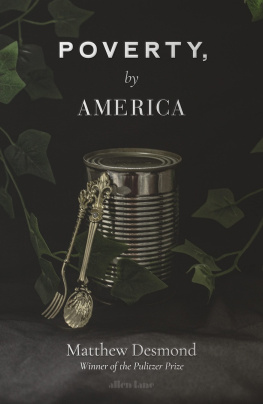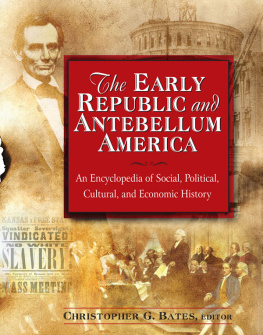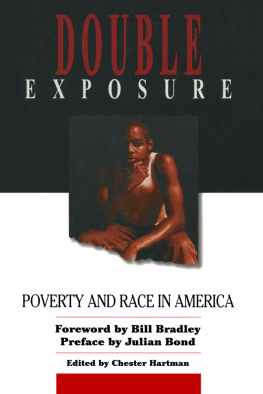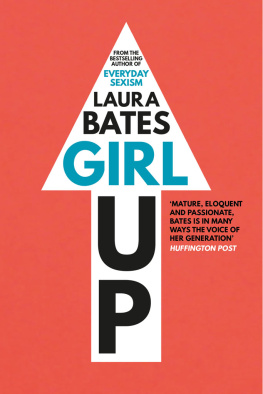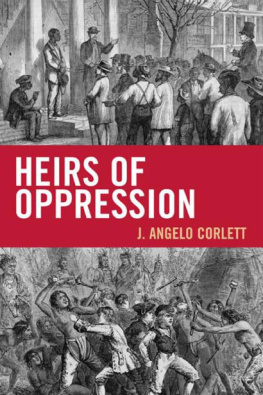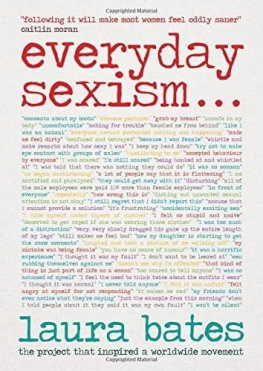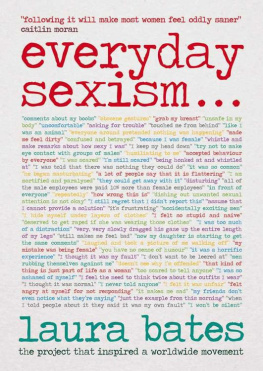
Poverty, Racism, and Sexism
Exploring the structural causes and consequences of inequalities based on a persons race, class, and gender, Poverty, Racism, and Sexism: The Reality of Oppression in America concentrates on this formidable set of disadvantages, demonstrating how Americans are adversely affected by just one or a combination of three social factors.
Grounded in sociological thought, the text highlights unfolding stories about major social inequalities and relentless campaigns for peoples rights. Weaving together such concepts as individualism, social reproduction, social class, and intersectionality, the book provides a framework for readers to understand the vast injustices these groups encounter, where and why they originated, and why they continue to endure.
Poverty, Racism, and Sexism is a compact, versatile volume which will prove an invaluable resource for those studying social inequality, social problems, social stratification, contemporary American society, social change, urban sociology, and poverty and inequality.
Christopher B. Doob is a sociologist, writer, researcher, and now Emeritus Professor of Southern Connecticut State University. He has written books on introductory sociology, social problems, race and ethnicity, social inequality and social stratification, and, most recently, sports.
First published 2021
by Routledge
605 Third Avenue, New York, NY 10158
and by Routledge
2 Park Square, Milton Park, Abingdon, Oxon OX14 4RN
Routledge is an imprint of the Taylor & Francis Group, an informa business
2021 Christopher B. Doob
The right of Christopher B. Doob to be identified as author of this work has been asserted by him in accordance with sections 77 and 78 of the Copyright, Designs and Patents Act 1988.
All rights reserved. No part of this book may be reprinted or reproduced or utilised in any form or by any electronic, mechanical, or other means, now known or hereafter invented, including photocopying and recording, or in any information storage or retrieval system, without permission in writing from the publishers.
Trademark notice: Product or corporate names may be trademarks or registered trademarks, and are used only for identification and explanation without intent to infringe.
Library of Congress Cataloging-in-Publication Data
Names: Doob, Christopher Bates, author.
Title: Poverty, racism, & sexism : the reality of oppression in America / Christopher B. Doob. Other titles: Poverty, racism, and sexism
Description: New York, NY : Routledge Books, 2021. | Includes bibliographical references and index.
Identifiers: LCCN 2020051425 (print) | LCCN 2020051426 (ebook) | ISBN 9780367672676 (hbk) | ISBN 9780367672683 (pbk) | ISBN 9781003130550 (ebk) Subjects: LCSH: Equality--United States. | Racism--United States. | UnitedStates--Race relations. | Sexism--United States. | Poverty--United States.
Classification: LCC HM821. D657 2021 (print) | LCC HM821 (ebook) | DDC305--dc23
LC record available at https://lccn.loc.gov/2020051425
LC ebook record available at https://lccn.loc.gov/2020051426
ISBN: 978-0-367-67267-6 (hbk)
ISBN: 978-0-367-67268-3 (pbk)
ISBN: 978-1-003-13055-0 (ebk)
I settled on this title, Poverty, Racism, and Sexism: The Reality of Oppression in America, early in the project and soon afterward went looking online for a resemblance to its combination of issues. In 1949 journalist Claudia Jones wrote what became a celebrated essay entitled An End to the Neglect of the Problems of the Negro Woman, stating that there had been a growth in the militant participation of Negro women [in the] present-day struggles of the Negro people (Jones , 3). Joness article highlighted three issuessocial class, race, and genderexamining what became known as the triple oppression Black women suffered. Like Joness approach the present book concentrates on a similar set of issues, indicating how poverty, racism and/or sexism become major injustices undermining or even ruining their lives.
Joness article provided a powerful voice from the past. For me it was the first of many new voices, both from the past and present, that have illuminated this work and made its creation a constantly stimulating experience.
This is a compact, versatile volume that can prove useful for an array of courses on such subjects as social inequality, social problems, social stratification, contemporary American society, social change, urban sociology, and poverty and inequality. It is a fairly short work, focusing on what are indisputably core issues in the discipline.
The book uses a conflict perspective to examine the injustices that three large categories of Americans encounter in daily living. Throughout the chapters I provide extensive detail including quotes and concepts linked to peoples disadvantaged lives in order to convey a clear sense of both the sources of their troubles and how actual individuals feel and react to the formidable stresses and dangers they must endure.
This is the second book in which I have focused on what appear to be central elements of a complex subject matter. In my Racism: An American Cauldron, internal colonialism, a version of conflict theory, examined four sources of oppression which the theory emphasized. In the present work, concentration on three important subject areas permits readers to develop a detailed sense of the scourges inflicted on millions of Americans lives, with studies and reports testifying to their salience and often displaying provocative interrelationships between or among the three categories of people involved.
The discussion in this book focuses on poor people, racial minorities, and girls/women at various major phases in their livesduring both childhood and adolescence, at school, and on the job. In addition, the text examines critical quality-of-life issues and possible solutions to some of the major problems that the destructive conditions produce. A number of central concepts and ideas appear in the opening chapter and often return in the following onesan approach producing more continuity in content than textbooks often provide and potentially making the material both more interesting and easier to grasp and retain.
I have written this book with the following motto in mind: Keep learning about the past and present while committing to a better future.
Bibliography
Cliff Brown at the University of New Hampshire, Ruth Hernndez at Skidmore College, Celeste Lee at Spelman College, Rhonda Levine at Colgate University, and David J. Maume at the University of Cincinnati provided very useful reviews.
I am grateful to Tyler Bay for his many editorial contributions. During the production process, Sarah M. Hall, Emma Harder, and Charlotte Taylor added significantly to the projects advancement. In addition, Jim DeLucias observations have been helpful. Teresa Carballal has shared her singular perception, offering valuable insights and ideas.
Sociologist Alexis McCurn was starting a research project in Central East Oakland, a poor, largely Black city. One morning the bus in which she rode passed a small park, and McCurn saw women and men asleep on benches or on the grass and others talking while drinking from bottles in paper bags. As the bus proceeded along a thoroughfare, she noticed a number of Black women in their late twenties to mid-thirties, stationing themselves on this busy street with at least a block separating them. These were likely to be sex workers.



